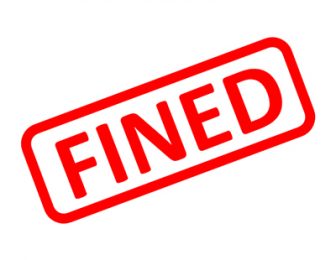 Total fines for letting agents and landlords have increased by an average of £90,000 per month in 2022, taking the total to £8,157,745 so far this year, reflecting a growing trend of yet more regulation targeting the PRS.
Total fines for letting agents and landlords have increased by an average of £90,000 per month in 2022, taking the total to £8,157,745 so far this year, reflecting a growing trend of yet more regulation targeting the PRS.
Enforcement is also on the rise as councils are stepping up their enforcement efforts, particularly in London where just over 12% of all fines in London were handed out in the last 12 months, an increase of more than £1m since last December.
The data, provided by Kamma, shows that August topped the chart as the most active month for fine activity. Fines totalling over £238,000 were handed out in the month alone.
It is not just total fines that are going up, average fines for letting agents have also increased to £4,695, a rise of over £200 since 2021. 78% of all agent and landlord fines are related to management and licensing of houses and HMOs, which can be linked to the increase in both schemes and enforcement across London.
Camden council has continued to top the council enforcement list in terms of number of cases brought forward, followed closely by Newham and Waltham Forest. Yet, the London Borough of Hammersmith and Fulham is now the London borough with the highest average fines of £19,800, followed by Hillingdon with an average of £13,500, and Hackney with £11,250.
Orla Shields, CEO and Co-founder of Kamma commented: “2022 has been another record year for licensing and fines handed out, with total fines now exceeding £8.1 million in London alone. At the same time, average agent fines have increased by over £200 pounds just in the last year, with the upward trend continuing into 2023.”
This month Kamma has published a 2022 Licensing report that summarises all the trends seen in the private rented sector regarding property licensing, enforcement and licensing fines.
“This report gives agents an overview of all the latest schemes throughout the year as well as an overview of the content and guides published by Kamma throughout 2022,” Shields explained. “We hope this report will provide agents with a good understanding of the current licensing landscape and help them keep up to date with new licensing scheme developments.”


Comments are closed.